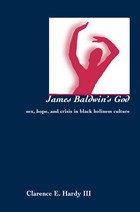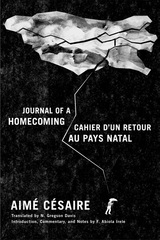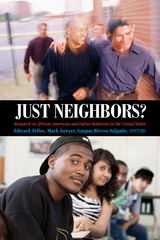307 books about Black Studies (Global) and 3
start with J
307 books about Black Studies (Global) and 3
307 books about Black Studies (Global)
3 start with J start with J
3 start with J start with J

James Baldwin's God
Sex, Hope, and Crisis in Black Holiness Culture
Clarence E. Hardy
University of Tennessee Press, 2009
James Baldwin’s relationship with black Christianity, and especially his rejection of it, exposes the anatomy of a religious heritage that has not been wrestled with sufficiently in black theological and religious studies. In James Baldwin’s God: Sex, Hope, and Crisis in Black Holiness Culture, Clarence hardy demonstrates that Baldwin is important not only for the ways he is connected to black religious culture, but also for the ways he chooses to disconnect himself from it. Despite Baldwin’s view that black religious expression harbors a sensibility that is often vengeful and that its actual content is composed of illusory promises and empty theatrics, he remains captive to its energies, rhythms, languages, and themes. Baldwin is forced, on occasion, to acknowledge that the religious fervor he saw as an adolescent was not simply an expression of repressed sexual tension but also a sign of the irrepressible vigor and dignified humanity of black life. Hardy’s reading of Baldwin’s texts, with its goal of understanding Baldwin’s attitude toward a religion that revolves around an uncaring God in the face of black suffering, provides provocative reading for scholars of religion, literature, and history.
The Author: Clarence Hardy is an assistant professor of religion at Dartmouth College. His articles have appeared in the Journal of Religion and Christianity and Crisis.
The Author: Clarence Hardy is an assistant professor of religion at Dartmouth College. His articles have appeared in the Journal of Religion and Christianity and Crisis.
[more]

Journal of a Homecoming / Cahier d'un retour au pays natal
Aimé Césaire
Duke University Press, 2017
Originally published in 1939, Aimé Césaire’s Cahier d’un retour au pays natal is a landmark of modern French poetry and a founding text of the Négritude movement. This bilingual edition features a new authoritative translation, revised introduction, and extensive commentary, making it a magisterial edition of Césaire’s surrealist masterpiece.
[more]

Just Neighbors?
Research on African American and Latino Relations in the United States
Edward Telles
Russell Sage Foundation, 2012
Blacks and Latinos have transformed the American city—together these groups now constitute the majority in seven of the ten largest cities. Large-scale immigration from Latin America has been changing U.S. racial dynamics for decades, and Latino migration to new destinations is changing the face of the American south. Yet most of what social science has helped us to understand about these groups has been observed primarily in relation to whites—not each other. Just Neighbors? challenges the traditional black/white paradigm of American race relations by examining African Americans and Latinos as they relate to each other in the labor market, the public sphere, neighborhoods, and schools. The book shows the influence of race, class, and received stereotypes on black-Latino social interactions and offers insight on how finding common ground may benefit both groups. From the labor market and political coalitions to community organizing, street culture, and interpersonal encounters, Just Neighbors? analyzes a spectrum of Latino-African American social relations to understand when and how these groups cooperate or compete. Contributor Frank Bean and his co-authors show how the widely held belief that Mexican immigration weakens job prospects for native-born black workers is largely unfounded—especially as these groups are rarely in direct competition for jobs. Michael Jones-Correa finds that Latino integration beyond the traditional gateway cities promotes seemingly contradictory feelings: a sense of connectedness between the native minority and the newcomers but also perceptions of competition. Mark Sawyer explores the possibilities for social and political cooperation between the two groups in Los Angeles and finds that lingering stereotypes among both groups, as well as negative attitudes among blacks about immigration, remain powerful but potentially surmountable forces in group relations. Regina Freer and Claudia Sandoval examine how racial and ethnic identity impacts coalition building between Latino and black youth and find that racial pride and a sense of linked fate encourages openness to working across racial lines. Black and Latino populations have become a majority in the largest U.S. cities, yet their combined demographic dominance has not abated both groups' social and economic disadvantage in comparison to whites. Just Neighbors? lays a much-needed foundation for studying social relations between minority groups. This trailblazing book shows that, neither natural allies nor natural adversaries, Latinos and African Americans have a profound potential for coalition-building and mutual cooperation. They may well be stronger together rather than apart.
[more]
READERS
Browse our collection.
PUBLISHERS
See BiblioVault's publisher services.
STUDENT SERVICES
Files for college accessibility offices.
UChicago Accessibility Resources
home | accessibility | search | about | contact us
BiblioVault ® 2001 - 2024
The University of Chicago Press









